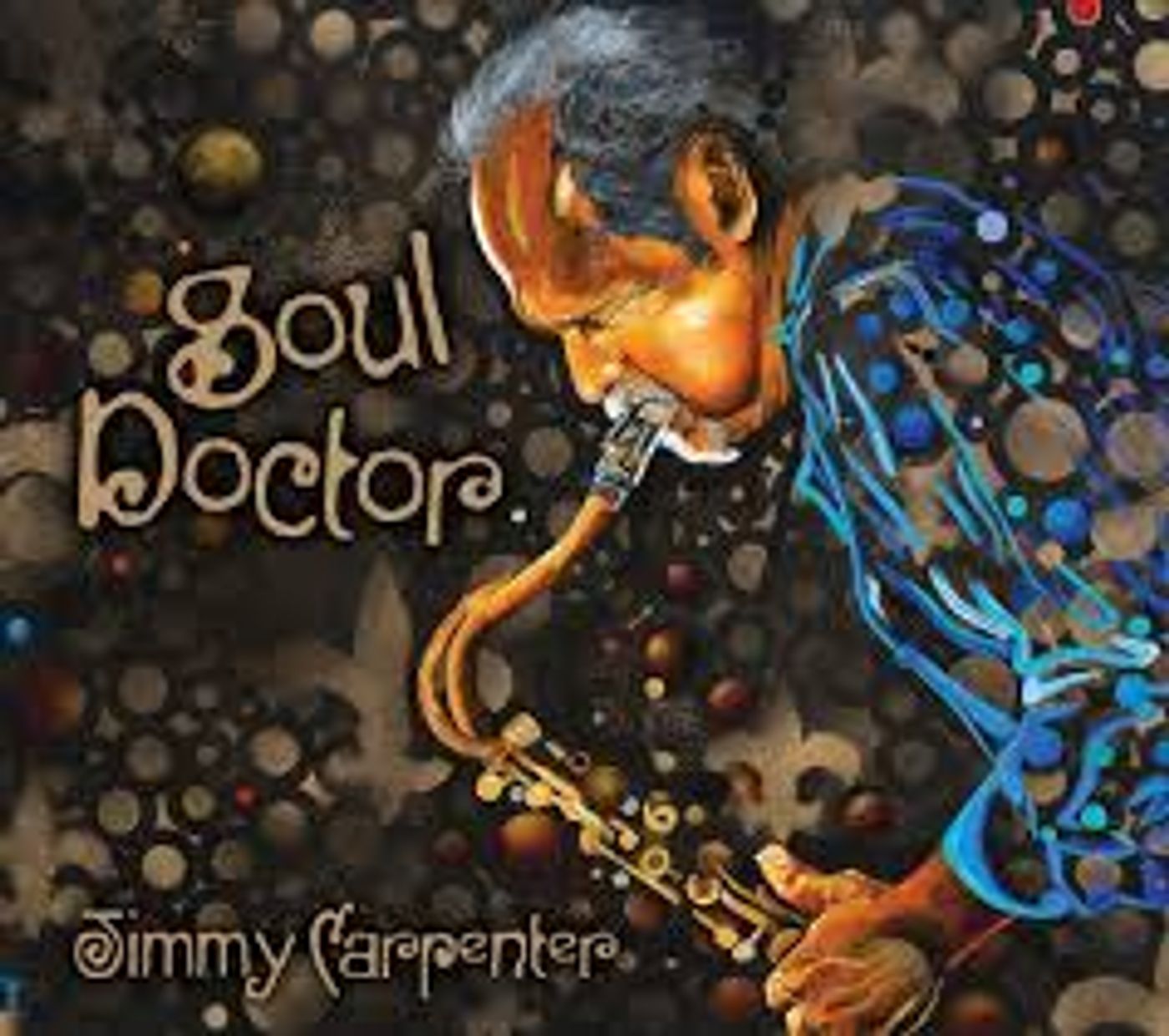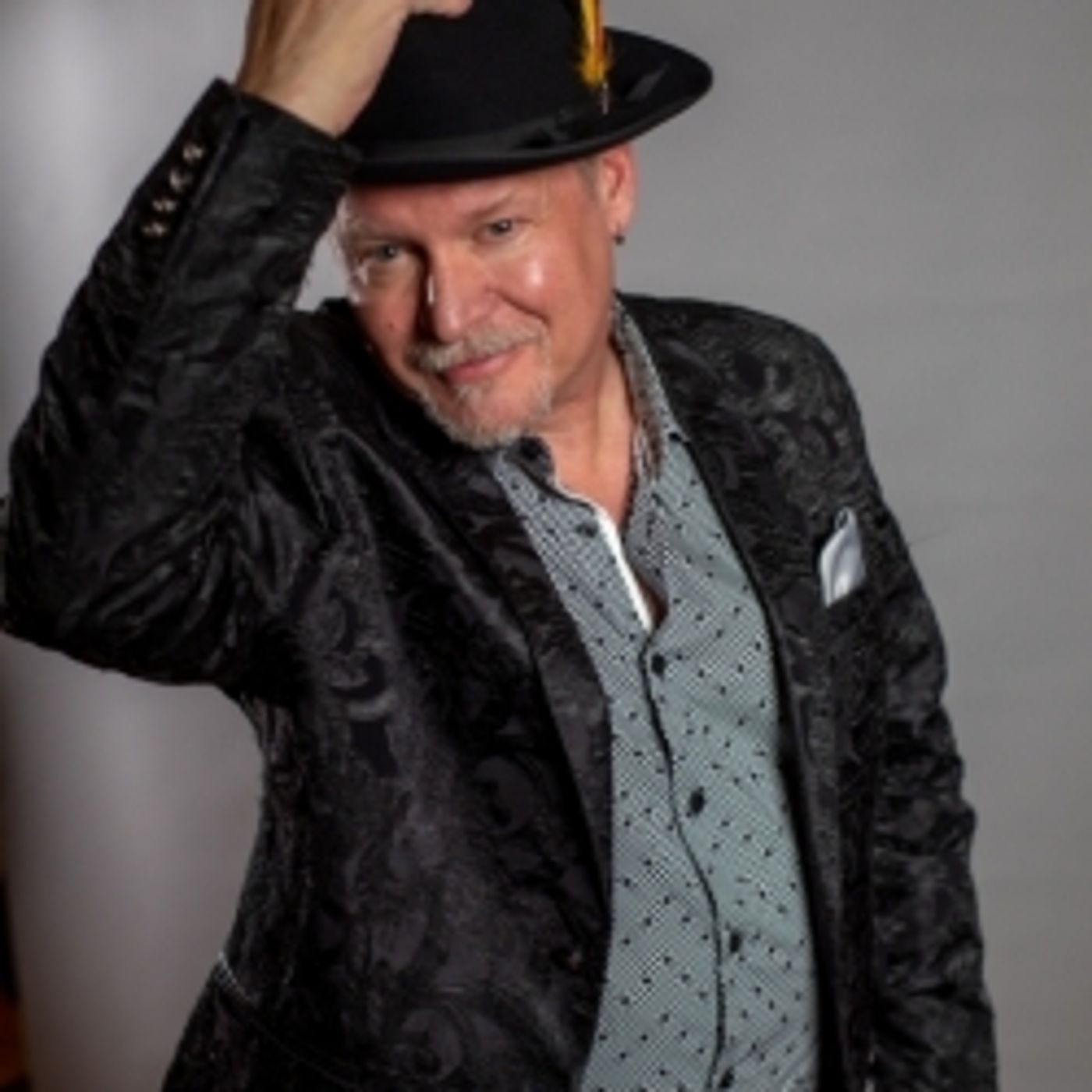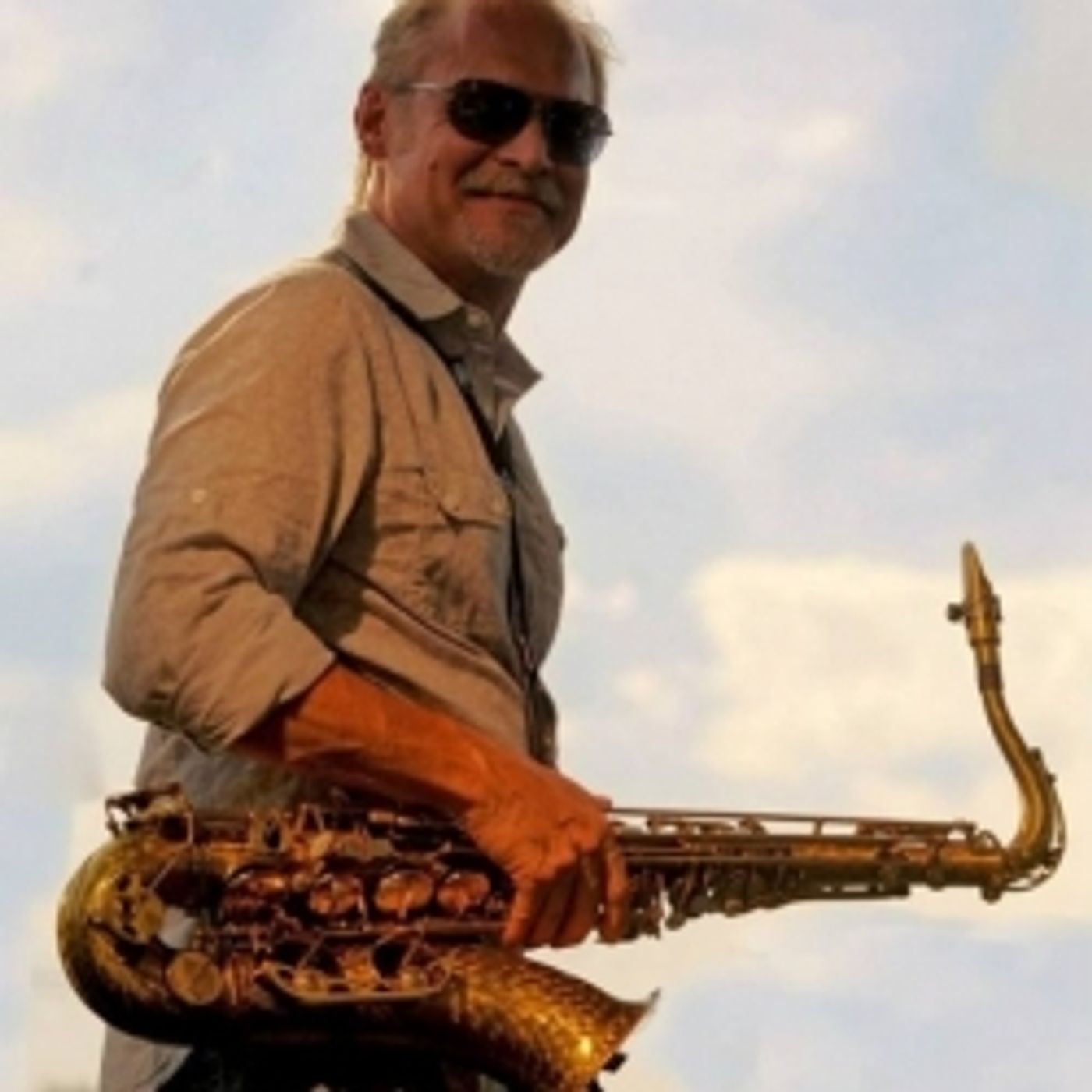Interview: Jimmy Carpenter Brings the Sax with SOUL DOCTOR
In recent years, the saxophone has been making its way back to the front of the band, especially in the blues world. A granting of due to a longtime sideman, and one who's proud of it, has come to Jimmy Carpenter.
Soul Doctor is a trip through the blues, soul and R&B genres, and with pretty much a seamless run between all. "It's going really well," Carpenter recently said, "the reviews have just been amazingly wonderful."
Carpenter describes Soul Doctor as, "...blues, kind of rock and roll. I really loved soul music, I think I kind of hit on a lot of different things. It's all connected. I think the record came out with a real nice overall sound. Being a saxophone player, I've got a lot of different influences, and I really do love soul music, so it's trying to lean in that direction a little bit. There's so many guitar players and harp players playing straight-ahead blues, and I love that stuff, but I kind of like to spread it around, too."
The Blues Foundation has also taken notice, as Carpenter has gained a nomination for the Blues Music Award for Best Instrumental - Horn. The attention on Carpenter is not lost on him, and he credits his new label, Gulf Coast Records, and longtime friend Mike Zito for much of that. "I've never had publicists and radio people working on my behalf," Carpenter admits, "I've always done that myself, for better or worse. It's a challenge to do all that on your own, and this has been almost a luxury."
As for the recording, Carpenter was given "carte blanche" to do the project in Las Vegas, where he is now based. "(Mike) trusted me to do it," Carpenter explains. Originally I was gonna go down there and do it with his guys in Texas, but in the meantime, I had started working with these guys in Vegas, we were playing some of those songs already, and I told Mike, and he goes, 'Man, just do it there.'
"I think the (album) holds together, but it was not so much by design," Carpenter goes on. "I needed material; I started working on new stuff, I adapted a couple of older songs to fit the new kind of R&B/Soul format. A couple of them, I wrote just doing the recording session, it all kind of just came about."

Carpenter is quick to credit his bandmates and session players for Soul Doctor's result, such as bassist Jason Langley and drummer Cameron Tyler, who has toured with Danielle Nicole. Guitarists Trevor Johnson and Chris Tofield handled much of those duties, and Carpenter grabbed Nick Schnebelen to do the honors on the title track. "Nick was just passing through Vegas at the time we were finishing up the rhythm tracks," Carpenter says. "He was in the studio for all of an hour and a half, he came in and played that track, and I took him back to his gig. He killed it, of course."
During the interview, Carpenter reflected more than once on the friendships made in the music community, and Zito is no exception. "I met Mike about twenty years ago," Carpenter recalls, "he was a young, coming-up guitar player, and I was playing with Jimmy Thackeray. He opened a show for us at Buddy Guy's in Chicago. We kept in touch over the years, and about 2010, I guess, he asked me if I wanted to be involved in this project, Mike Zito and the Wheel. At the time, he was also touring with the Royal Southern Brotherhood, so we did shows between the Brotherhood tours. Then Mike left (them), and we were able to do it full time. We did three records together and toured all over the world, it was fabulous."
Carpenter's musical influences were jazz first. "My father had Dave Brubeck records," he recalls," and also big band records. Paul Desmond was a saxophone player with Brubeck, who is still one of my major loves, largely because he was such a melodic player at a time when everybody was playing these frenzied bebop things. Paul Desmond played beautiful melodies that fit the song and had this really nice round tone. That was my first exposure to saxophone.
Another accomplished sax player also struck Carpenter. "At the same time, Boots Randolph had a network television program when I was eight or nine," he remembers. "He would come out at the top of the show and play 'Yakety Sax,' and after he played the first chorus, and then the go-go girls would come out on either side of him doing their thing in the white boots and the whole deal." Carpenter laughed and said, "I thought that was amazing, yeah, man I wanna do that!"
Carpenter's education, and those he met also had a hand in his direction. "I went to music school in Greensboro, North Carolina," he says. "I thought I was gonna be John Coltrane, I was really heavy into the jazz thing, and as it happens, a really accomplished saxophone player moved into the neighborhood that I hung out in. I used to walk by his house and this guy used to practice six hours a day; he was a graduate of Berklee (College of Music, Boston), his name was Glen Ingram. I asked him what brings him to Greensboro and he says, 'Well my dad lives here, and he's gonna teach me how to fix clocks so I can make a living.' I've never forgotten that conversation. I was starting to play some blues, and I was getting paid to do that, and one thing led to another, so I realized if there's anything harder than making a living playing blues, it's making a living playing jazz. At about the same time, I got into Otis Redding, and I went backwards into the blues, and from then on, I was hooked."
The Alcaphonics were one of Carpenter's stops through much of the 1980s. He later moved to Virginia and played with a blues band called the Believers. Admittedly burned out, Carpenter then opened a booking agency, "which was going okay," he says, "but after a couple of years of that, I got a call from my old friend Tinsley Ellis offering me a road gig, and I was out the door in about ten minutes."
The veteran blues guitarist was already a longtime friend. "I met him in '79, I think," Carpenter remembers. "It's really cool how friendships and connections, they just come around, even if nothing happens right off the bat. That was the first real national touring that I did, and that led to Jimmy Thackeray; it's a beautiful thing when it works."
The blues is an expanding style of music, as younger artists bring more diverse influences to the table. When asked about the newer generations, Carpenter has a unique point from which to view it. "I am the musical director for the Big Blues Bender, a major festival here in Vegas," Carpenter explains, "and I go through hundreds of submissions for that, and as a result of that, I see a whole lot of new things."
Carpenter then touches on a portion of the issue that is, for some, sensitive. "One of the things that has kind of hurt the blues to some degree is people being really rigid about what that means, and I think in order for this whole thing to keep drawing and expanding, it needs to be more inclusive than exclusive. To me, blues is the basis of all of it, rock and roll, soul, R&B, hip-hop, anything that's got should to it comes out of the blues.
'Also I really love songs," he adds. "Another thing that's hindered the blues to some degree is the lack of songwriting. A cool song is a cool song, it can be adapted to the format, and you can push the envelope a little bit without getting too far astray from it. In my stuff, the blues is the basis of all of it."
The saxophone is again taking its place at the front of the band. Fellow sax player and singer Vanessa Collier dropped Carpenter's name during our recent discussion. "Vanessa is really something special," Carpenter says. "I'm really enjoying watching her take off. What comes across with her, is (first) she just plays her ass off, but two, she has an amazing presence and personality, it's really hard not to love her when you see her. There was a time when the saxophone players were rock stars, maybe that's starting to come back around again. If I live long enough, it'd be great."
Jimmy Carpenter is again touring with Mike Zito and doing a feature spot in those shows. He will also tour the UK in February and play more shows in the States as spring approaches. His work with the Big Blues Bender has allowed Carpenter a little more of a home life, and there is a balancing act there. "I've toured as a sideman my whole life, when I came out to Vegas and started working with the Bender, it meant that I didn't necessarily have to do that all the time. It's given me the opportunity to do my solo thing.
"What I have always loved is from the musician side of it, being part of a band. Adding to the songs, creating things working with the other players to make the songs better. I want musicians to remember me as a musician within a band.
"My record is not a saxophone record," Carpenter stresses, "the saxophone fits into the songs, rather than the other way around. It's important for people to see this work, it's important for me, Vanessa, Deanna Bogart, Terry Hanck, Sax Gordon, all of us, to keep at it, it's an amazing instrument and one of the bases of jazz and blues and rock and roll."
Photos courtesy of http://jimmycarpenter.net
https://www.gulfcoastrecords.net
https://www.vanessacollier.com
Videos

